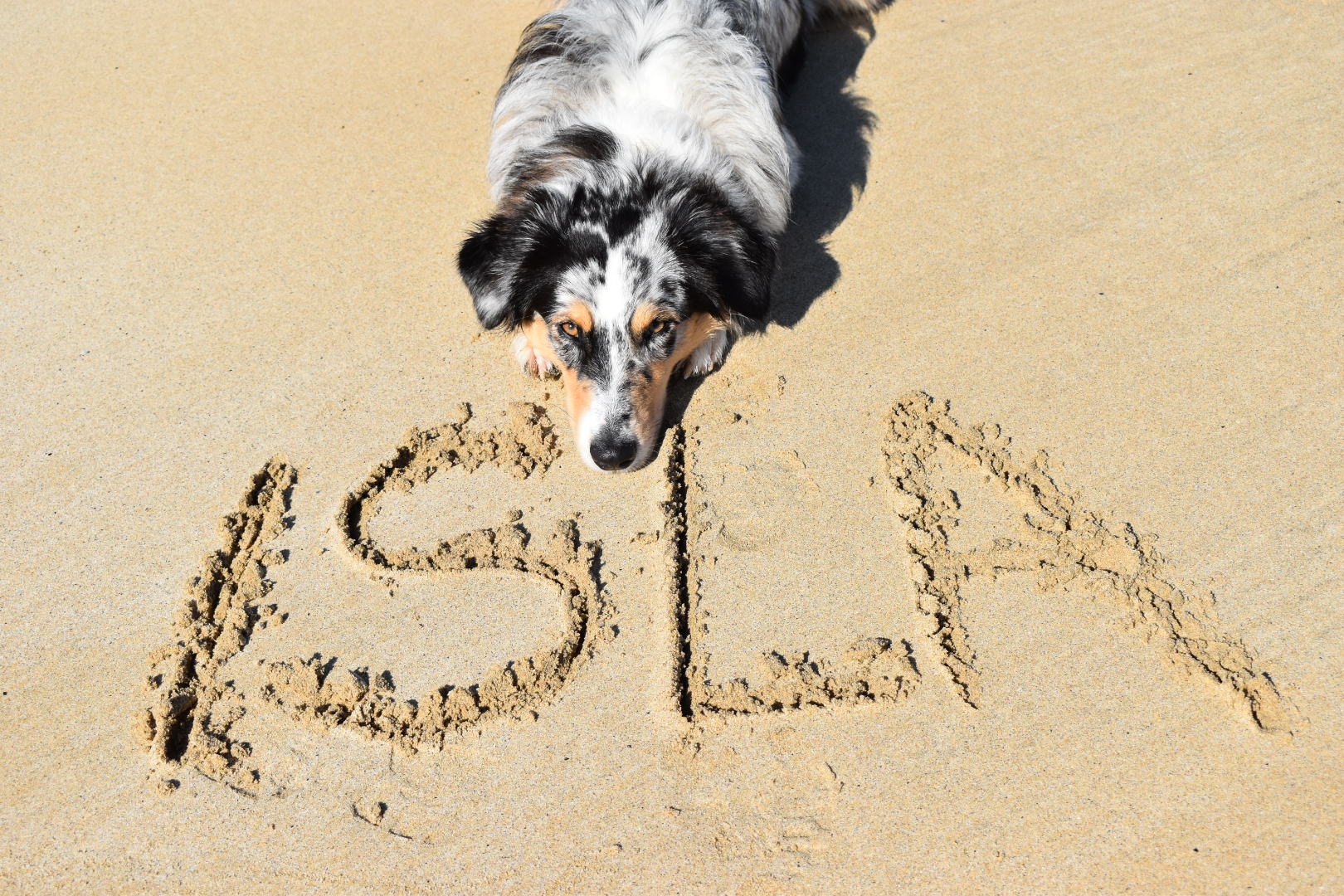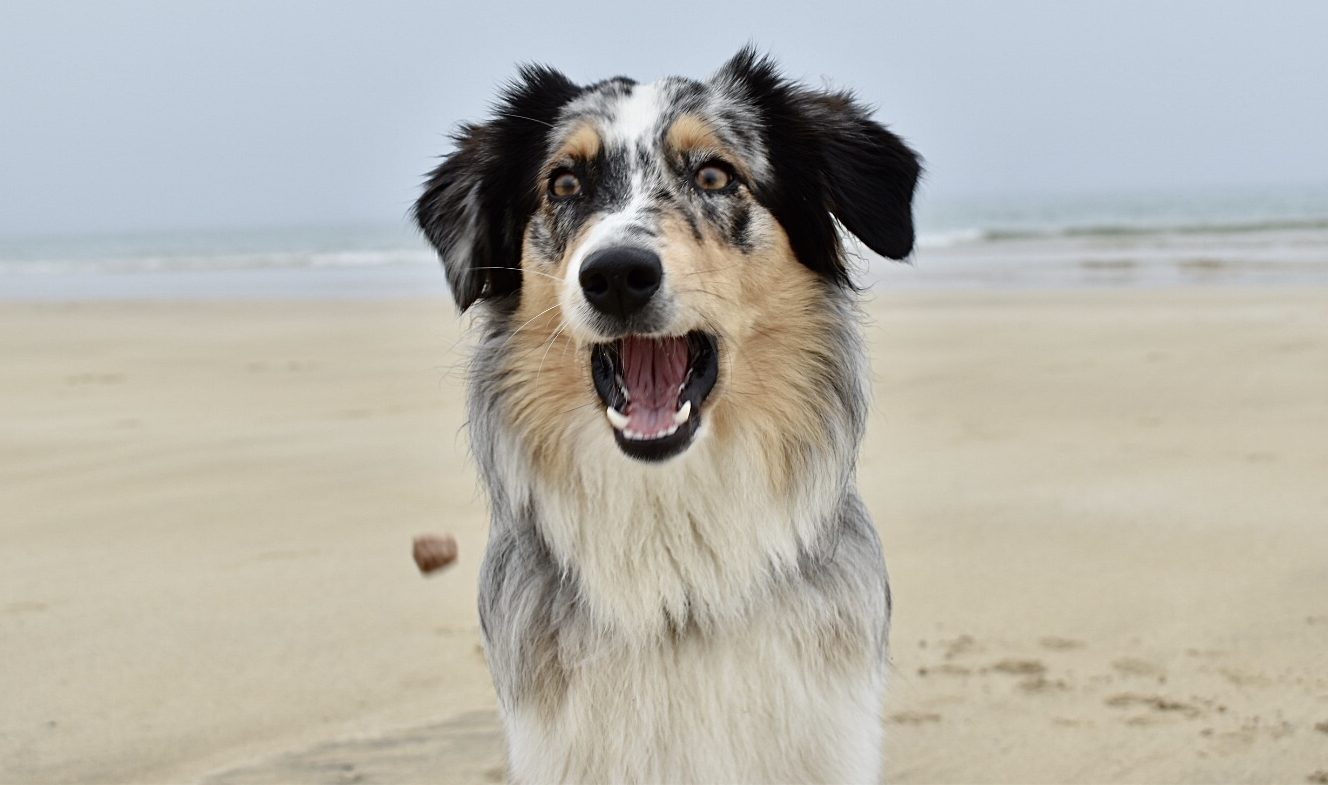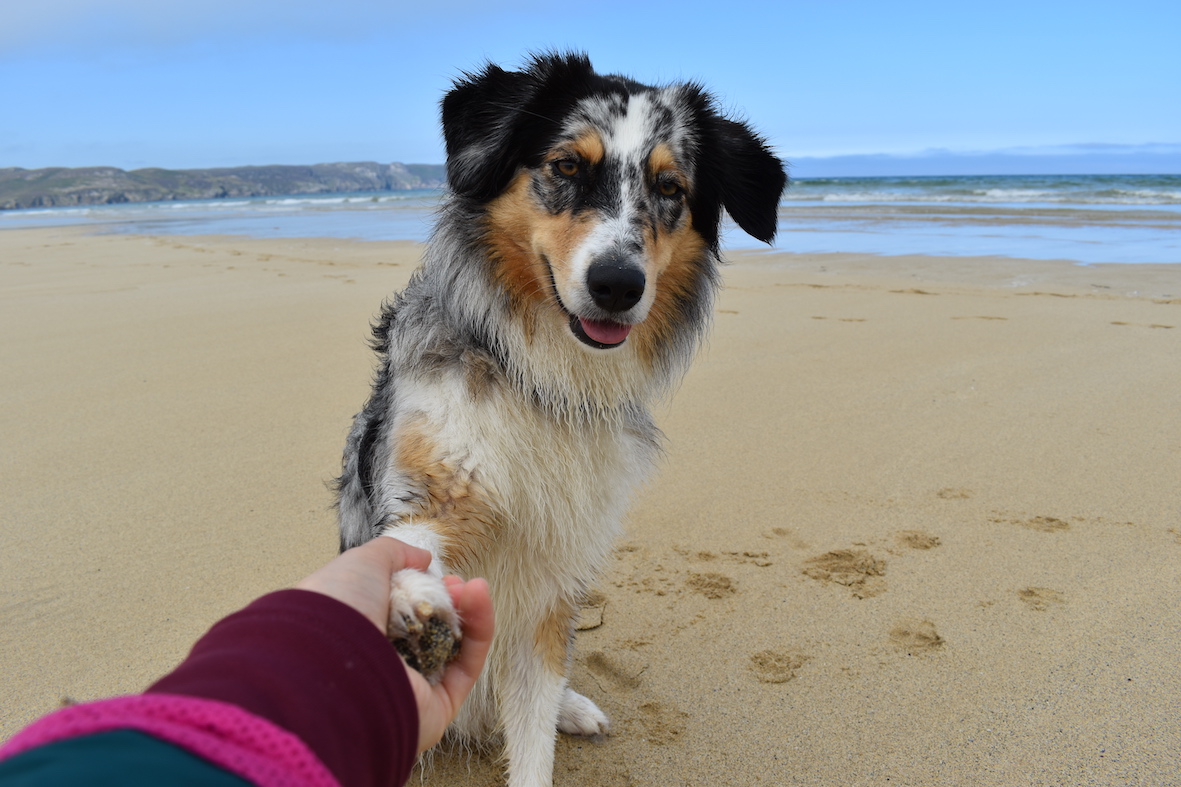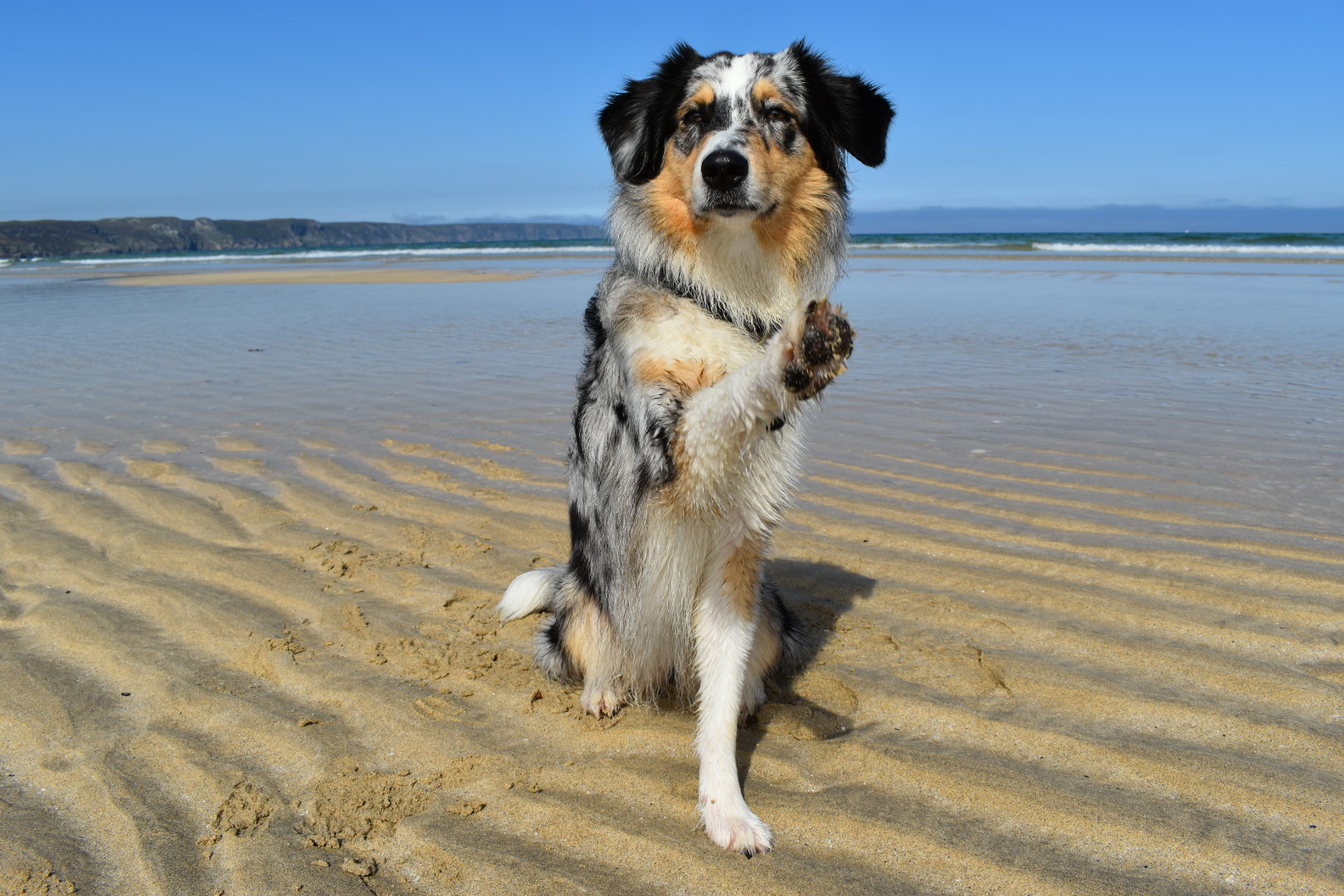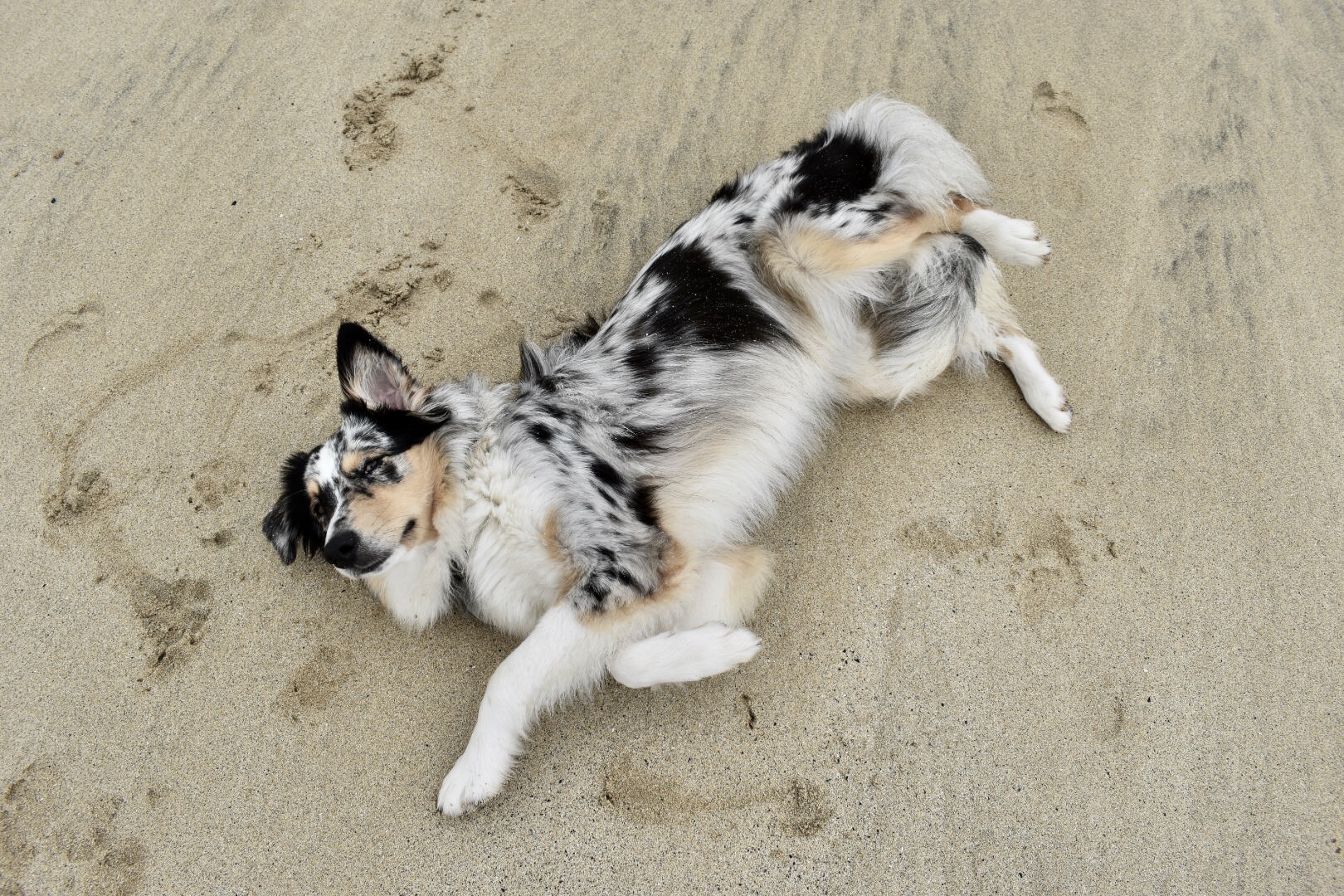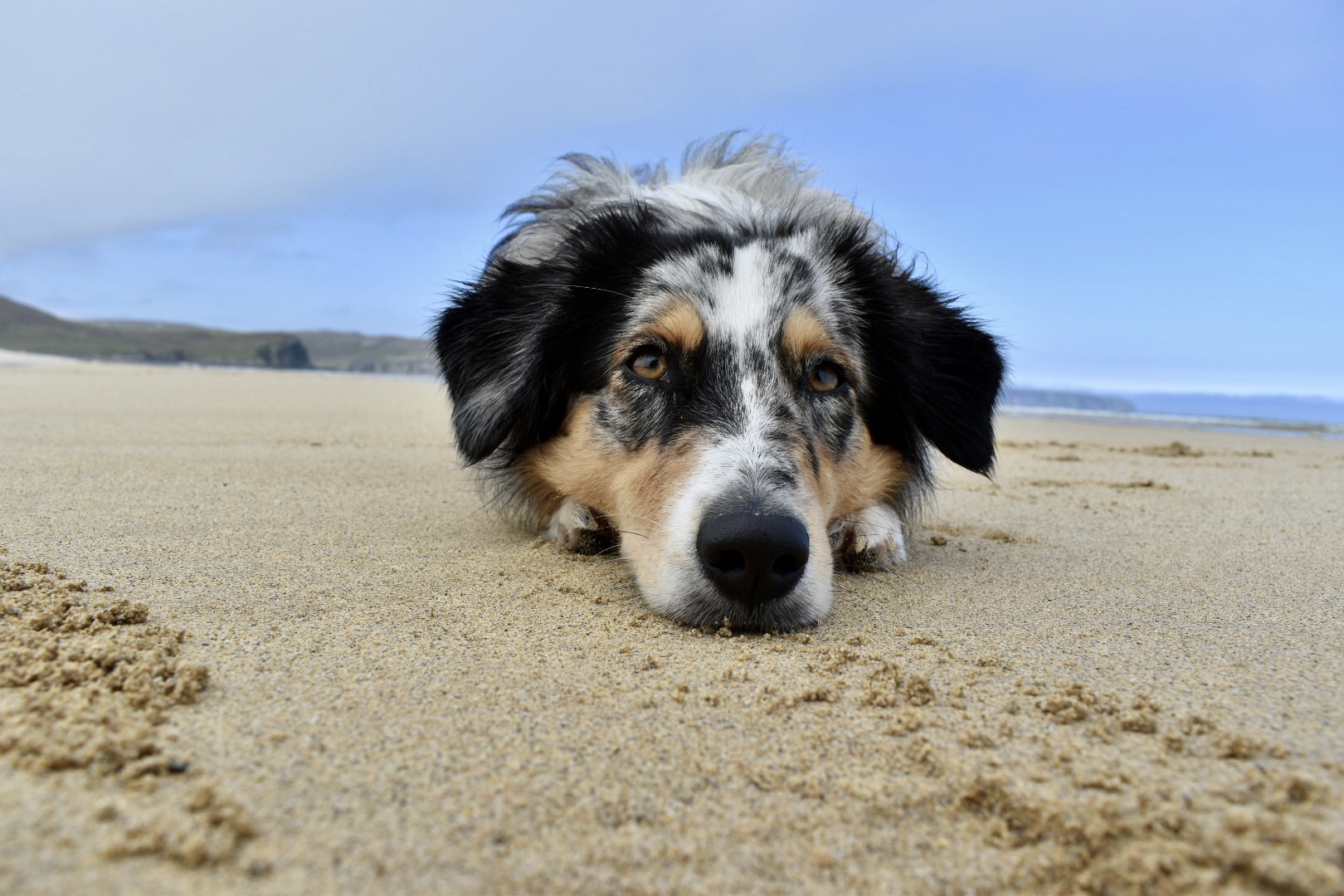In case you didn’t fall into a YouTube hole of dog trick videos during lockdown like I did, you might be looking for a few fun and easy party tricks to teach your dog. Especially on rainy days or global pandemics when going outside isn’t necessarily the best option, training these will exhaust your dog just as much as a long walk.
Assuming your dog knows the essentials sit, down, stay and come, these tricks are for entertainment purposes only (and Instagram). Having established a release word can also be very helpful in preventing your dog from rushing through the motions hoping for a treat. Ours is simply ‘ok’ and we’ve been practicing it since she was a few weeks old, using it for anything from stay to her feeding bowl. Ok simply means whatever I asked her to do before no longer applies and she is free to do whatever she wants (e.g. run off into a field, inhale her dinner, jump up on the bed…)
For younger dogs, 5-10 minutes at a time are perfectly sufficient and even grown dogs can’t always concentrate much longer. Try going for two to three small training sessions a day but you’ll be surprised how quickly many dogs already get an idea of what you’re trying to teach them.
At first, you’ll want to reward them for even the smallest effort in the right direction. This is known as ‘shaping’ and the important part is not saying the preferred word too soon, as your dog will get confused as to what it is supposed to do. Using the example of waving, this means rewarding with a treat every time the dog lifts its paw a little and step by step only rewarding it when the paw is lifted properly or has been up for a few seconds, depending on your desired outcome. If you say ‘wave’ every time it scratches the floor, shakes your hand or full on waves at the neighbor for 20 minutes, you can wear it out. Instead, reward decent behaviour with a treat and the desired behaviour with a treat, the word and a cheerful ‘good job’ if you feel like it.
Disclaimer: my pup responds very well to treats and the occasional compliment but food is where her motivation is at. As a result, all of my advice is drawn from my own experiences with food-based rewards. If your dog is not motivated by food or loses interest in it too soon, you might want to try rewarding it with its favorite toy, playtime, a high-pitched congrats, strokes or anything else you can think of that your dog associates with having been a good pup.
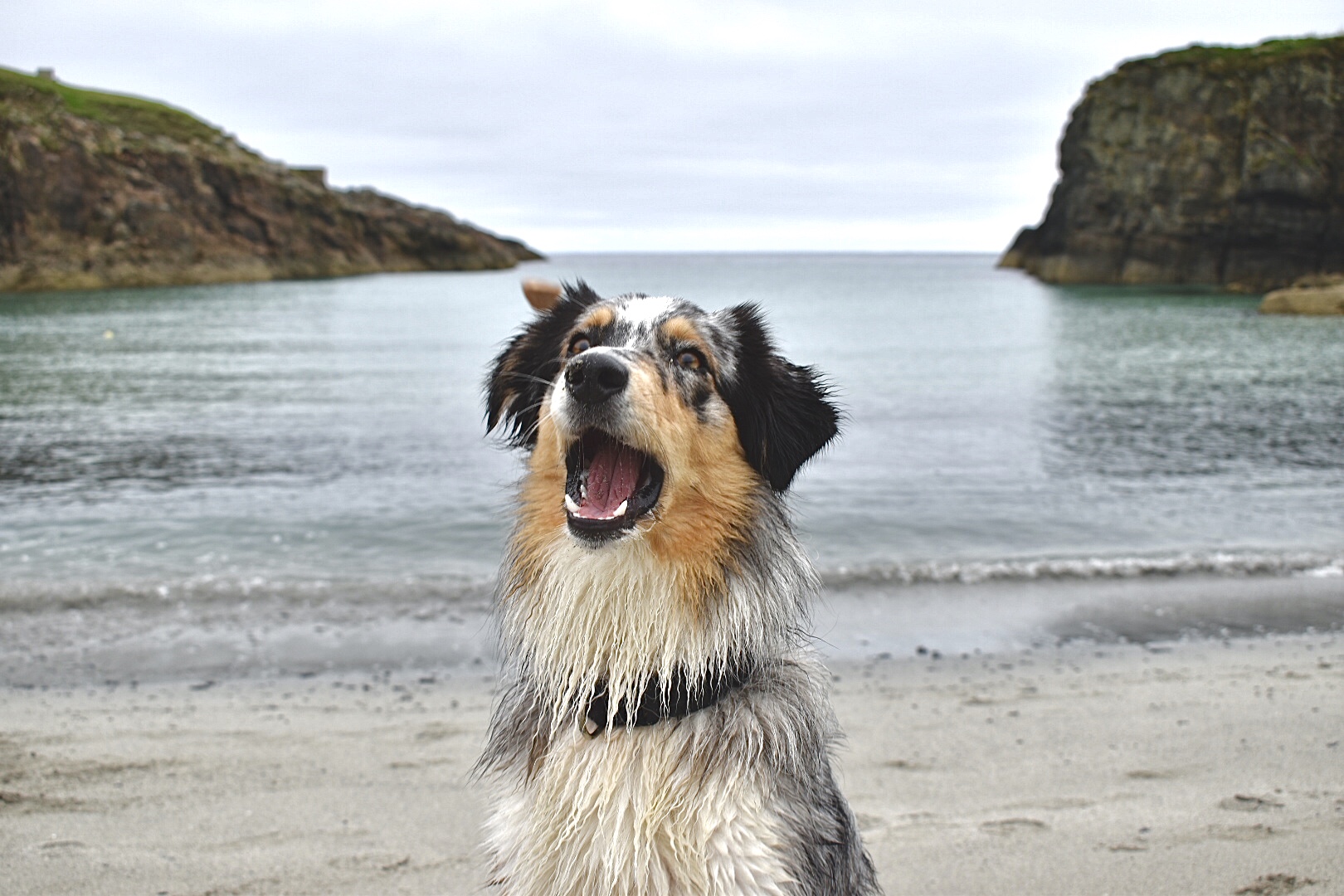
- Catch
- I’ve only taught my dog how to catch treats but I’ve seen lots of videos of dogs doing it with toys, balls or just about anything else that’s mouth-sized and comes with the word ‘catch’ so feel free to get creative for this one. If you have a dog that would rather eat your fingers every time you offer them a treat, this will come in super handy when you’re rewarding them for something while you’re walking.
- Start by dropping food into their mouths from literally half an inch above. The goal is to get them to open their mouths for a moving object rather than taking it from your hand or watching it fall to the ground. My dog took forever at this stage so don’t despair.
- Once they get the gist of it, drop it from a bit further above and then start throwing it head-on. Dogs are far-sighted so if you’re struggling with the close drop see if you can get better results by throwing it from a distance right away.
- The tricky bit here is to pick up the treat before your dog gets to it, otherwise it rewards itself and it will take longer for it to see the point in catching it.
- Move further and further away and practice your throwing skills as your dog practices its catching skills
- Paw
- Honestly, this pretty much came as a reflex to my dog. You stretch out your hand and either they will reach for it, or you’ll just grab theirs to shake it like you’re an upstanding citizen who is being awarded the medal of honor for saving a stranger’s child from a burning building. Feel free to choose your own scenario for this one. While you’re shaking it, say the word of your choice (paw is just the obvious choice) and reward with a treat. Do this lots and lots of times, rewarding while you say the word and shake the paw. After a while, your dog will know what you want it to do and you can start saying the word as it is reaching for your outstretched hand. The final stage is saying the word and having the dog lift its hand in response. If, like me, you prefer wordless communication, you can stop when your dog automatically responds to you stretching out your hand. If you want your dog to shake your hand for a longer time, just delay the reward a bit more each time or refuse to let go until you’ve given the release signal.
- Wave
- This might be one of my favourites just because it looks so polite. It’s quite similar to paw so I suggest training that one first and taking it from there. Once we’d established paw and used it for a few days, I would reach out my hand without shaking hers. Out of habit, she would reach out hers and I would give her a treat. With time, I held the treat up higher and she followed it with her paw. Now, I just need to lift my hand that once held the treat and she waves.
- Roll Over (do NOT practice this within at least 1 hour of eating a meal or the dog will be at risk for a twisted stomach, larger dogs like Labradors and Retrievers are particularly at risk for this and if you’ve seen Marley and Me, you know this is not a joke. Should your dog show any symptoms of extreme discomfort after your training session, please contact or visit a vet)
- Get your dog to lie down. Use a treat to lure it to one side, gently nudge them in the desired direction if necessary, and reward for lying on their side. Once you’ve done that a few times, you can graduate to nudging them towards rolling over. Again, this comes more natural to some dogs than others so don’t despair. Mine needed a LOT of nudging but eventually got it. I said the words ‘roll over’ while she was actively rolling over, not while she was on her side or stuck on her back. Moving the treat in a circular motion also helped in the beginning and now I don’t even need to say anything anymore, I just wave the treat and over she rolls.
- Head down
- Put your dog in a lying position and use a treat to get it to rest its head on the ground. At first, it may only do this for a second and it’s important to reward it straightaway to let it know it’s on the right path. With time, it should leave its head down for longer until you can eventually add a word (ours is simply ‘head’) and even ask it to stay down until you release it.
What’s your favourite trick? Let us know via Facebook or Instagram!
